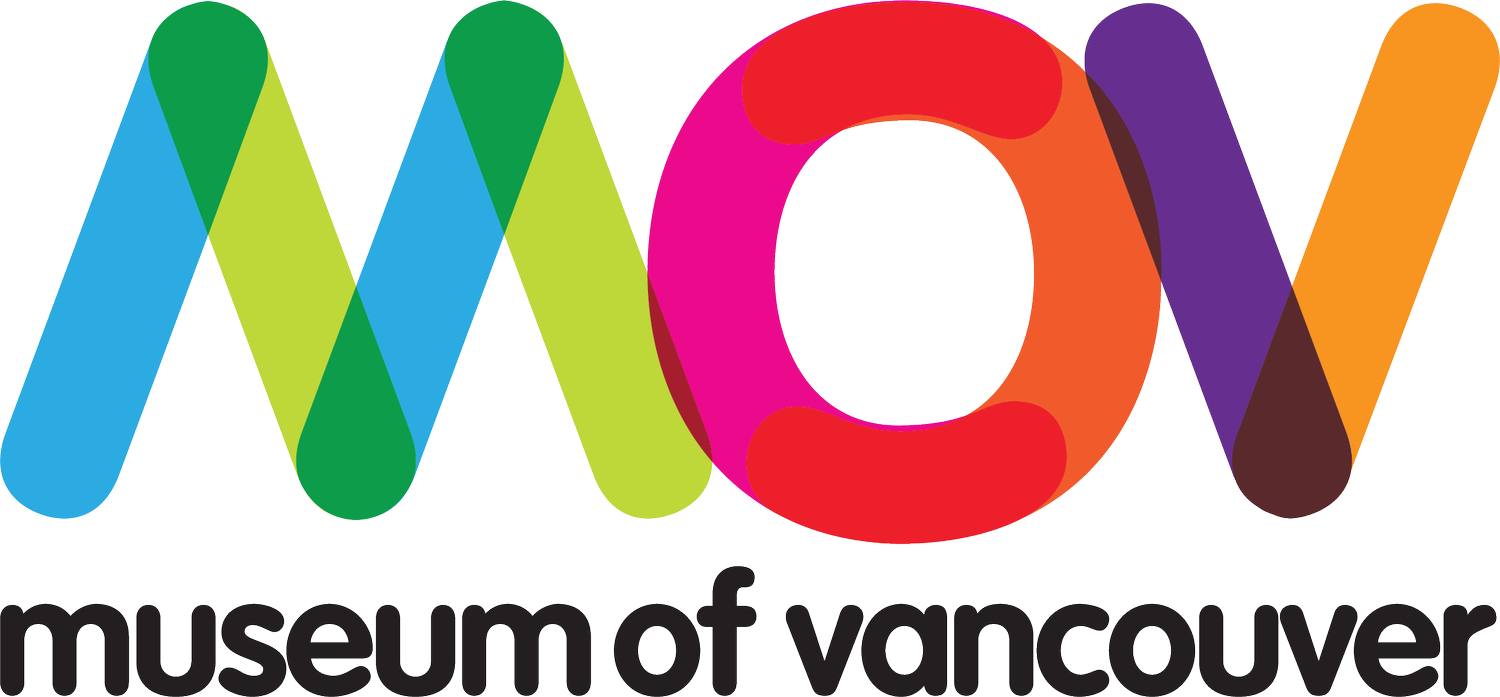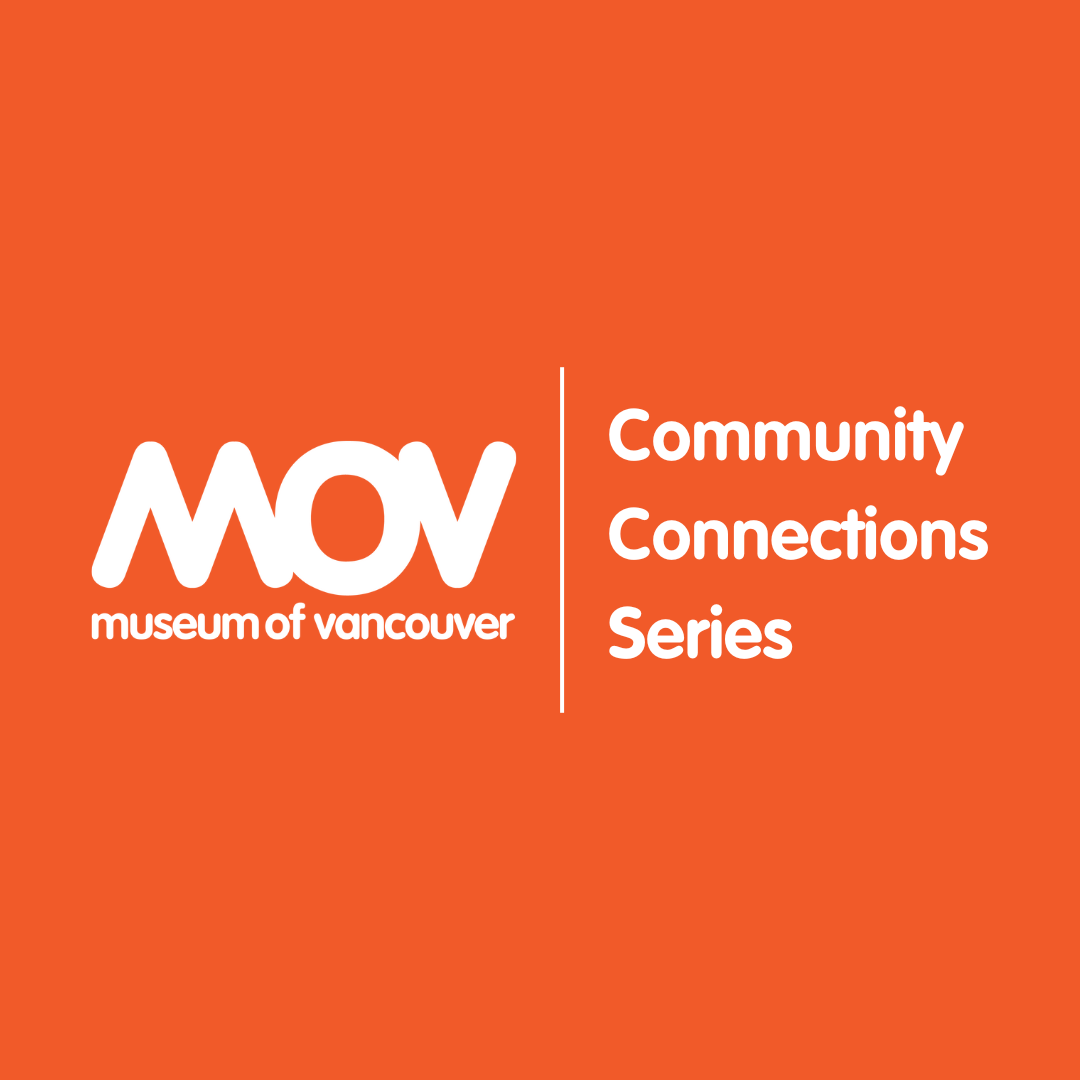The Community Connections Series invites organizations, individuals and communities to tell their respective stories about the objects and belongings in the MOV Collection.
This Canadian Heritage funded project is part of the Museum’s mission to amplify access to the Collection and centre often underserved and under- or mis-represented communities through interactive digital engagement that fosters connection and learning.
Jag Nagra
Jag Nagra is a queer visual artist who is passionate about community development and ending the stigma against LGBTQ+ people within the South Asian community. She focuses her art practice on concepts that depict a sense of confidence and fearlessness—she unapologetically celebrates darker skin tones and South Asian garments and motifs.
She has collaborated with organizations such as the Vancouver Canucks to make art for their very first Diwali jerseys which gained international attention. She has also created artwork for Tim Hortons, Microsoft and Tumblr and has had numerous public artworks on display throughout Metro Vancouver that honour her heritage. She has been featured in the multi-award winning internationally acclaimed LGBTQ+ documentary Emergence: Out of the Shadows, and is currently serving as the Vice Chair of Vancouver’s Punjabi Market Collective.
Through art, she has found her voice and a new appreciation for her culture and identity.
Ken Brock
Over 30 years ago, Ken Brock began documenting his life as a gay man living in the USA and in Vancouver, a city he had called home since the early 1990s. He collects images and objects highlighting significant moments from his life, ranging between the 1950s and the present-day. Since 2005, the Museum of Vancouver and the City of Vancouver Archives have worked in tandem to acquire a significant portion of Ken’s collection.
“The reason that I decided on the archives, was that I knew that I wanted to write the truth. Before my collection, the whole community was closeted. And so, people might collect things but they would tell their best friend: when I die, you come in and get rid of everything that even hints at me being gay. So there isn’t a lot documented before my time.” —Ken Brock
Jody Sparrow
Meet Jody Sparrow, a Coast Salish artist from xʷməθkʷəy̓əm (Musqueam), who focuses on carving and jewelry. Raised Coast Salish, Jody shares his journey from being a Red Seal carpenter to becoming a must-know Indigenous artist in the city of Vancouver. Watch how he blends traditional design with his own contemporary style, making his personal story the core of his art. In this video, Jody talks about how he challenges himself and—driven by a deep motivation to share his craft—how he is passing on his techniques, some of which he taught himself, to his daughters and other Indigenous apprentices in the community. “My daughter asked if it was okay if she copy some of my work and it broke my heart to hear that,” Jody says. “I told my daughter: this is your legacy, anything you see of mine is yours.”
Jody’s work can be seen at the Lattimer Gallery and the Spirits of the West Coast Art Gallery. Two of his works, silver earrings called “Westerly Wind” and “Big Boom,” a silver pendant, are part of the Museum of Vancouver’s collection. Jody has also hosted workshops and demonstrations at the Museum.
Powell Street Festival
“[In] our legacy and our fights for justice for the Japanese Canadian community, we feel a personal obligation to stand with other groups that are still fighting for justice, especially in the Downtown Eastside.” —Kathy Shimizu
This Community Connections interview is with Powell Street Festival co-founder Takeo Yamashiro and Community Engagement Coordinator Kathy Shimizu. They visited the Museum of Vancouver to check out the 1977 banner and Festival program in the Collection and to tell us more about the first festival and the work that Powell Street Festival Society does today.
The Powell Street Festival was founded in 1977 to celebrate the centennial of Japanese people’s arrival in Canada. Many people in this community, including Canadian-born Japanese, settled in the Powell Street neighborhood until they were forcibly moved to internment camps by racist policies during World War Two. The Powell Street Festival honours the community’s history, its present and its future. It continues to bring Japanese Canadian arts, culture and community to the neighbourhood. The Festival also offers year-round programs and collaborates with local, national and international organizations, artists, and communities to advance equity for all.
Funded by



